Best sci-fi movies: the 33 greatest classic science fiction films
Best sci-fi movies from outer space to time travel, take a trip to the final frontier – and beyond
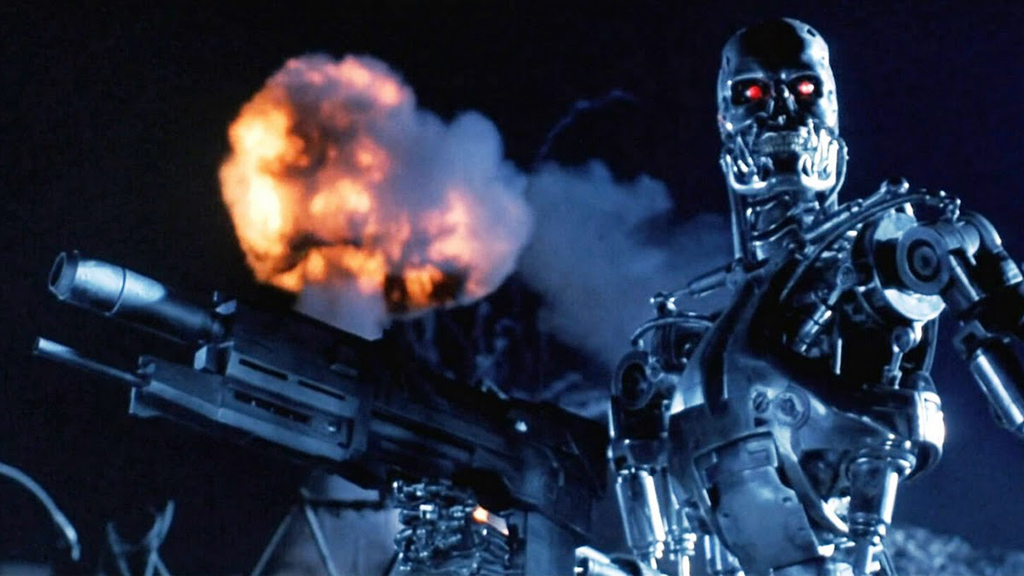
Picking the best sci-fi movies of all time is tough. After all, science-fiction is the genre of ideas, where almost anything is possible. What’s more, it’s a genre with many subsets. There’s ‘hard sci-fi’ like The Martian, and ‘space opera’ with a helping of fantasy, like Star Wars. The sci-fi that appeals to one person won’t necessarily appeal to another.
To create our list of the best sci-fi movies, we’ve looked back over nearly a whole century of cinema to pick out just 33 films that we think define the genre. We’ve tried to include as many different types of sci-fi as possible, including time travel, journeys into the mind and memory, and journeys out into the stars, covering action, comedy and arthouse drama along the way.
Many lists of the best sci-fi movies are often dominated by movies from the Star Wars, Alien and The Terminator franchises, so we’ve grouped the best films from those respective universes together as single entries. We’ve also skipped superheroes (almost) entirely, because they’re a genre all to themselves.
While we know there are some major omissions from the list below – Predator and Donnie Darko among them – we think this list represents an exciting adventure through the many worlds of science fiction, all of which are available to stream right now.
If you're looking for a movie to watch but you're not wedded to sci-fi, read our guide to the best Netflix movies instead. If you want the newest sci-fi and not necessarily the best, read our sci-fi in 2022 selection, for all the top space, multiversal and mind-melting science-fiction heading your way this year.
33. Ex Machina (2014)
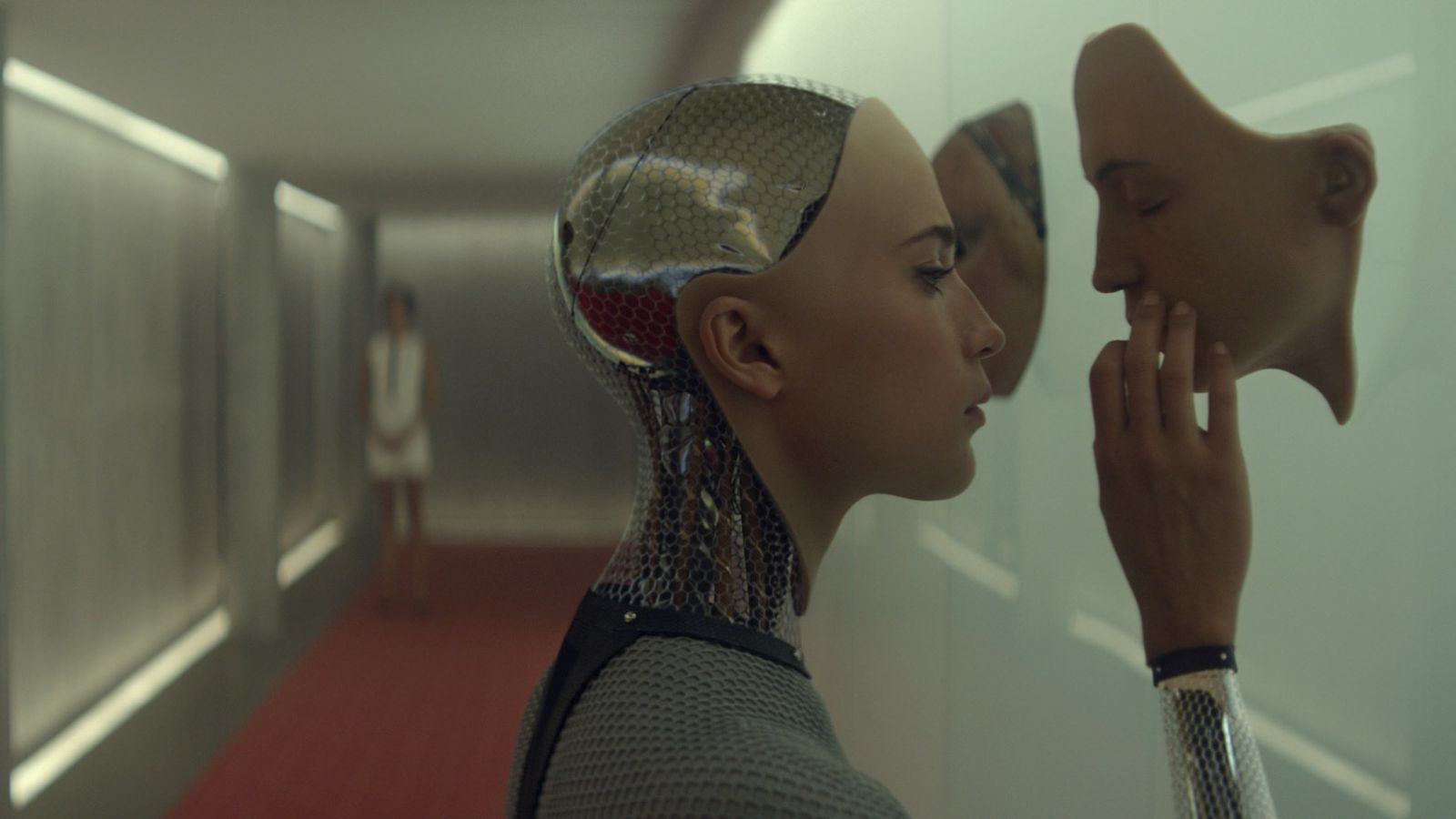
Directed by Alex Garland, who wrote the novel The Beach and the screenplays for 28 Days Later, Sunshine and Dredd, Ex Machina is stylish and cerebral sci-fi at its finest.
Starring Oscar Isaac, Domhnall Gleeson, Alicia Vikander and Sonoya Mizuno, it's about a man (played by Gleeson) who is invited to take part in a highly-secretive and advanced version of the Turing Test – or, at least that's what he thinks is going on. There are some not-so-expected twists along the way.
This film straddles the boundaries between sci-fi and gothic thriller, but at its core, this is a movie about ideas, philosophy and the human experience. It's a fascinating watch for anyone with an interest in the possible futures of human and AI interactions.
32. District 9 (2009)
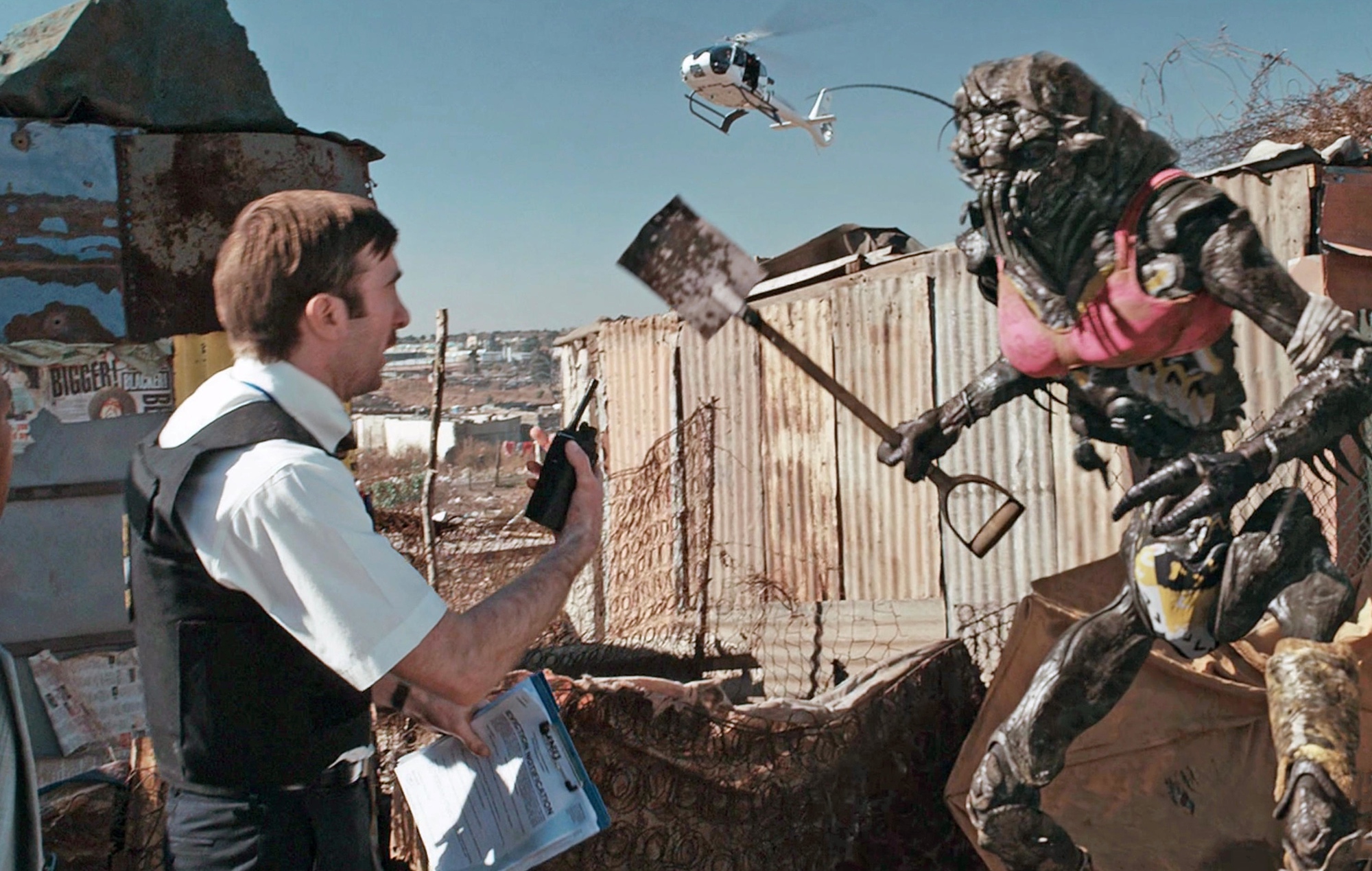
Many sci-fi films might be about aliens, space exploration and robots on the surface, but they're often allegories for deeper themes. District 9 is not-so-subtly based on events in Cape Town's District 6, when tens of thousands of people were removed from the area by the apartheid regime.
Twenty years before the movie begins, an alien spaceship appears over Johannesburg in South Africa containing many sick and malnourished aliens. They're given a place to live, District 9, but are treated like prisoners. The events of District 9 are about what happens when officials try to move the aliens to another area. But after so long of being treated so poorly, things don't go to plan.
The movie is a disturbing watch at times, and it's made up of a lot of found footage-style filming, featuring fictional interviews and news footage.
31. Serenity (2005)
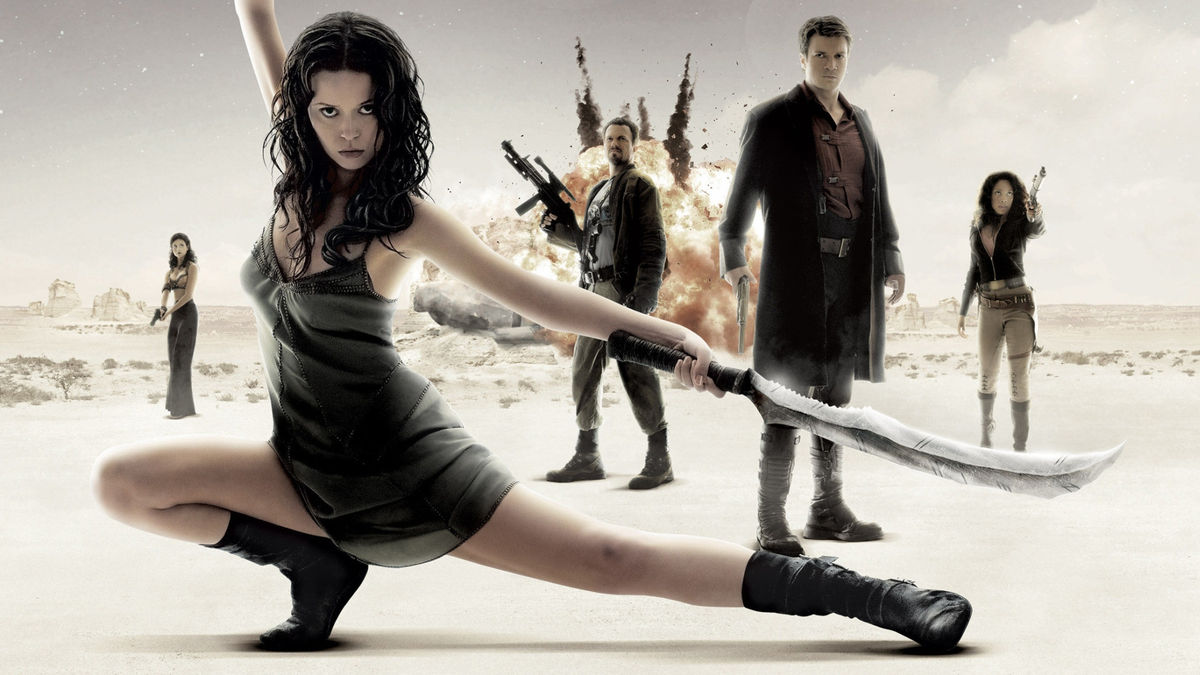
Back in 2002, the TV series Firefly only lasted one season, despite great ratings – luckily it's become a cult classic since. Written and directed by Joss Whedon (of Buffy fame), rather than give up on the story and the characters, he wrote a film that followed on from the final episode of Firefly, and that's how Serenity was born.
You don't need to have seen Firefly to enjoy Serenity (although we highly recommend you watch it if you haven't already), which is set in 2517 and follows the story of the crew of the spaceship Serenity – think of them a bit like space pirates, but good ones. They smuggle aboard a psychic and her brother without realising all of the secrets they have and people they're escaping from. It's a space opera western with some goofy characters and dialogue. But there's fantastic world-building here, and an underlying story about oppression, control and government secrets that makes for tense viewing.
30. The Martian (2015)

Ridley Scott’s high-profile return to the Alien universe, Prometheus, may have misfired, but his subsequent adventure in sci-fi proved his Midas touch hadn’t deserted him. That said, his adaptation of Andy Weir’s hit novel is science fiction with strong roots in science fact, the near-future-set tale of an astronaut accidentally left behind on Mars.
In Matt Damon, Scott found the perfect star to play the abandoned Mark Watney, his everyman charm and determination to make the best of the situation – even when his prized potato crop is destroyed – turning him into a believable, empathetic hero. As you’d expect from a Scott movie, the Martian vistas are stunning, while an all-star cast (featuring Jessica Chastain, Sebastian Stan and Kristen Wiig) make sure the efforts to mount an audacious rescue mission are just as compelling.
29. Guardians of the Galaxy (2014)
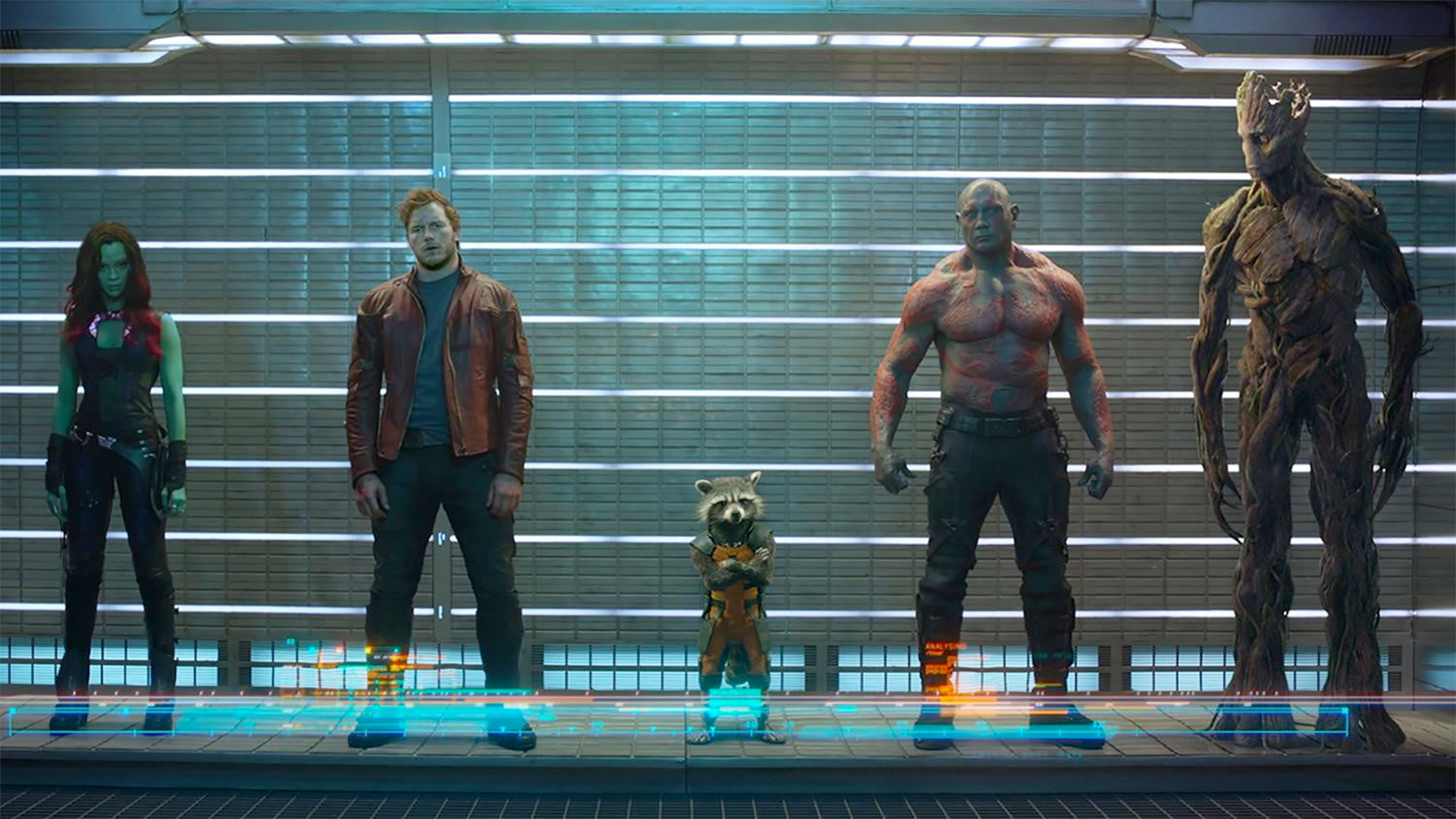
Guardians of the Galaxy was the film that proved Marvel could borrow from the more obscure corners of its extensive comic-book back catalogue and still have a monster hit. The tenth movie in the MCU left the Avengers (and planet Earth) behind for a rip-roaring slice of quirky space opera, as the then-relatively unknown writer/director James Gunn (Slither, Super) put his own highly quotable spin on the big-budget action.
Although the Guardians made their comic-book debut in the ’60s, Gunn leant more on Dan Abnett and Andy Lanning’s 2008 reboot, and established the most likeable bunch of a-holes in cinema. The movie also laid a lot of the Infinity Stone-shaped groundwork for Avengers: Infinity War.
If you're keen to catch up on everything that's been going on in the Marvel universe, then read our guide about how to watch the Marvel movies in order.
28. Under the Skin (2013)
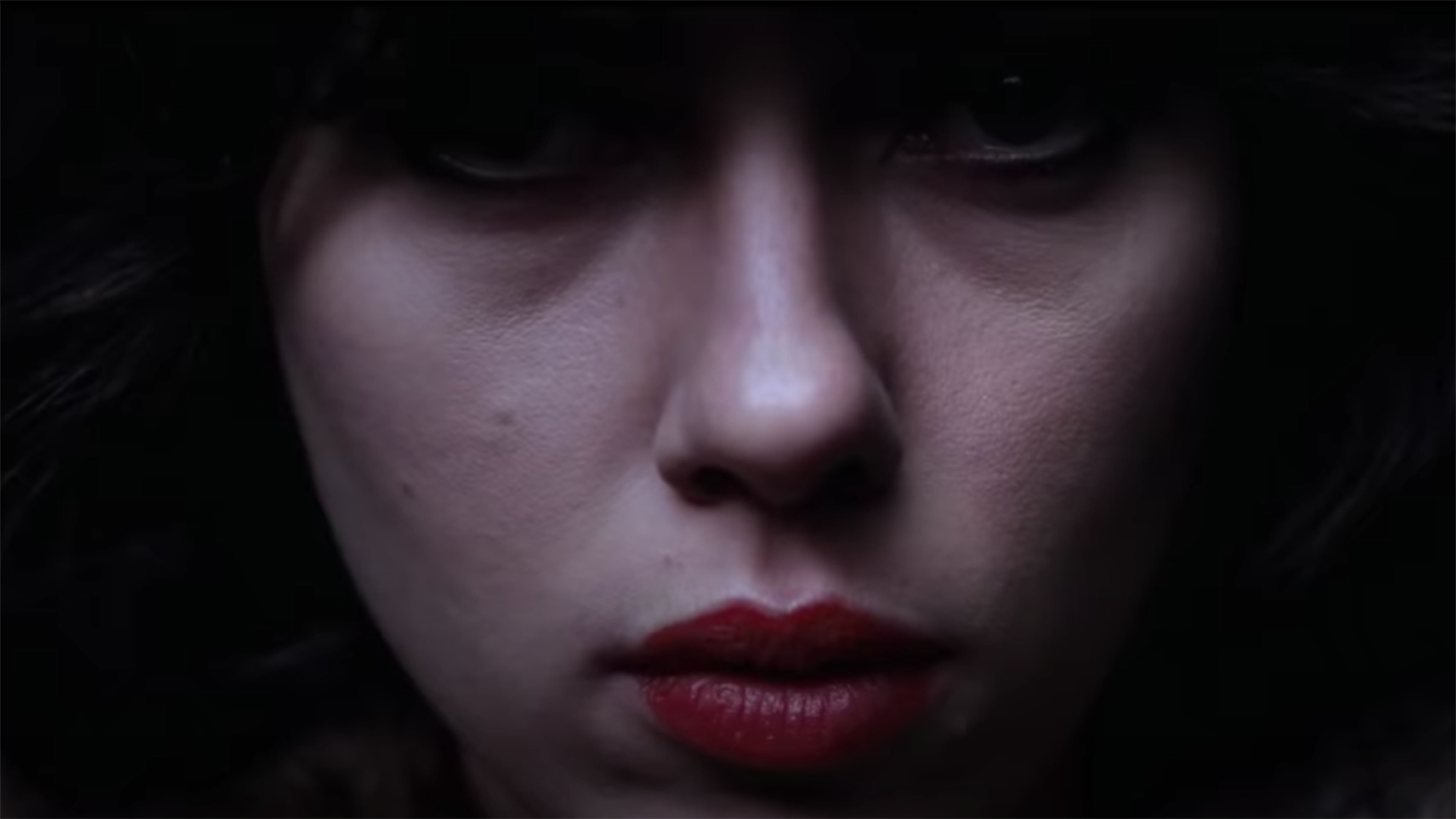
It’s unlikely that any of the other Avengers have made anything quite as weird as Under the Skin in their MCU downtime. Scarlett Johansson swaps the Quinjet for a non-descript white van, playing a mysterious alien driving round Scotland looking for her next meal – the twist being that her dinner of choice is men, whom she pulls into another dimension for sustenance.
Loosely basing the film on Michel Faber’s novel, director Jonathan Glazer (then best known for Sexy Beast) explores the more experimental corners of sci-fi – much of the movie was filmed guerrilla-style, with hidden cameras and unsuspecting members of the public. The result is one of the most singular sci-fi films of the 21st century, and a genuinely otherworldly experience.
27. Children of Men (2006)
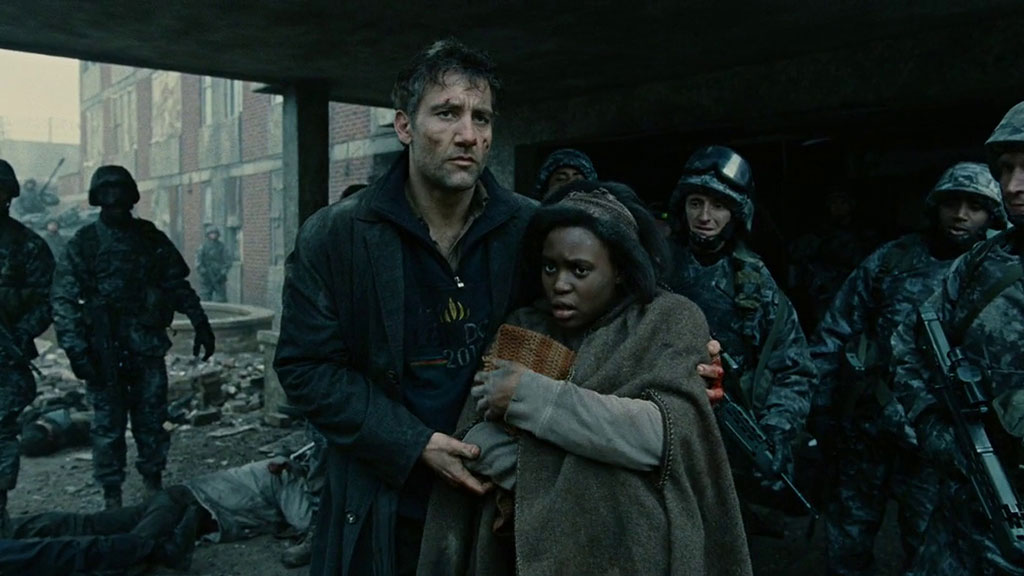
Alfonso Cuarón took home an Oscar for his work on orbital disaster movie Gravity, but Children of Men is arguably his masterpiece. Based on a novel by whodunit legend PD James, it’s set in a near-future where the human race has become infertile, and Clive Owen’s cynical office drone becomes the unlikely protector of the last pregnant woman on Earth.
Where many of cinema’s best dystopian visions go all-out on futuristic tech, Children of Men works because it feels so firmly rooted in our present. Its portrayal of a Britain on the verge of collapse makes a disturbing – but utterly believable – backdrop for its utterly compelling thriller plot.
26. Avatar (2009)
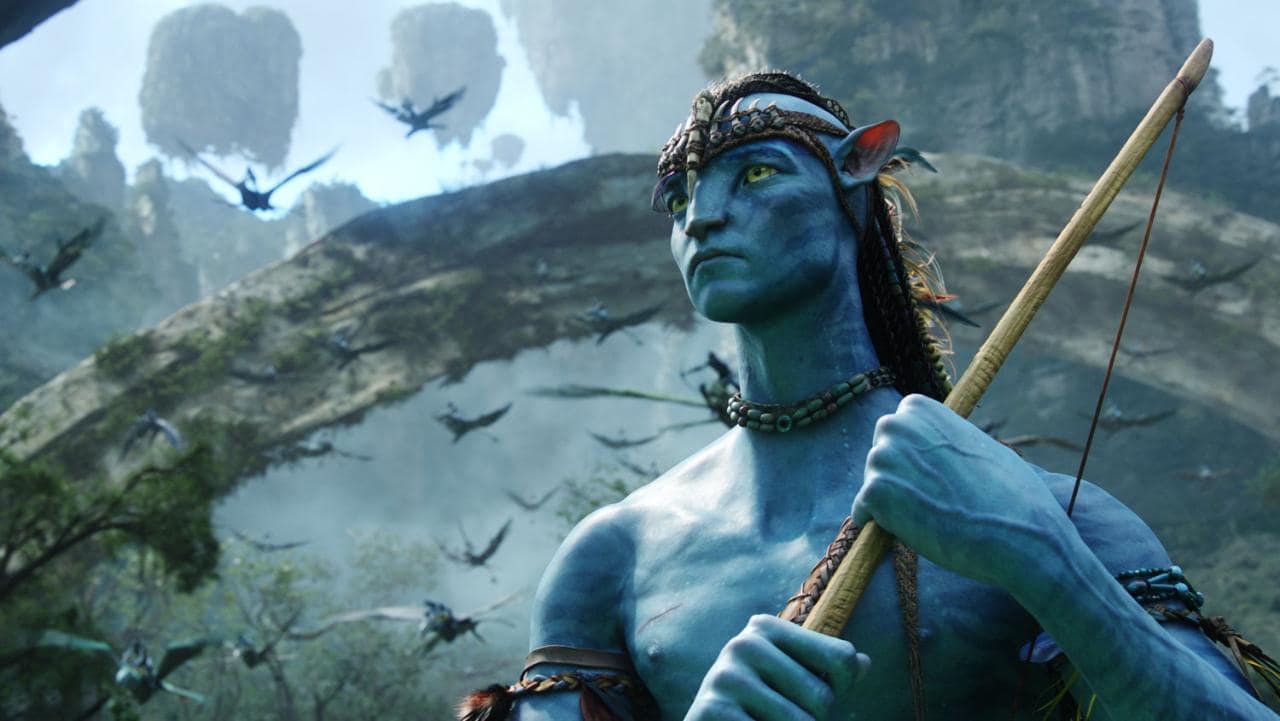
3D. Remember that? James Cameron’s Avatar was supposed to usher in a new era of three-dimensional cinema-viewing that ultimately fizzled out before it got the chance to take hold. The problem wasn’t with Avatar, however, a movie that was so far ahead of its time that the rest of Hollywood spent at least half-a-decade playing catch up.
While the story of a race of blue aliens fighting off human invaders is far from groundbreaking, Cameron’s innovative use of stereoscopic cameras and performance capture makes sure this is a complete feast for the senses – an experience so intense it’s like your screen has opened a window to the moon of Pandora. Cameron’s currently working on another four Avatar sequels – expect the boat to be pushed out in similarly spectacular fashion.
25. Eternal Sunshine of the Spotless Mind (2004)
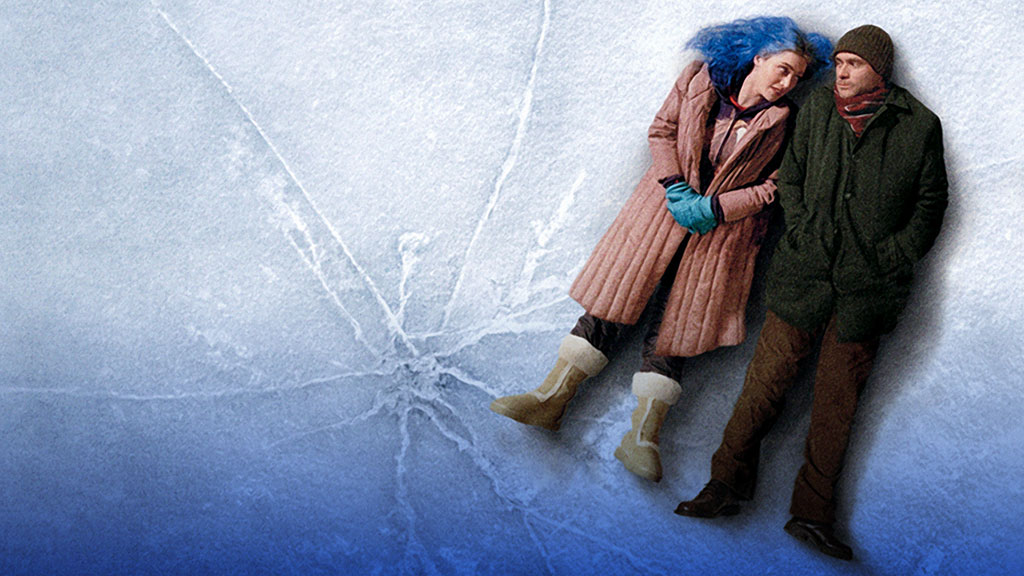
You wouldn’t expect a romance crafted by the writer of Being John Malkovich and Adaptation to be conventional. Indeed, the bigger surprise is that the Charlie Kaufman-scripted Eternal Sunshine of the Spotless Mind is such a touching love story – albeit one that’s largely told in reverse.
Expertly directed by music video legend Michel Gondry, it follows an estranged couple (played by Jim Carrey and Kate Winslet) who use prototype technology to erase their memories of each other. But as Carrey’s Joel starts to remember the earlier days of their affair, he falls back in love with Winslet’s Clementine. The result is a near-perfect melding of a dizzyingly high-concept, a wonderful cast, and a deep dive into the human condition.
24. Akira (1988)
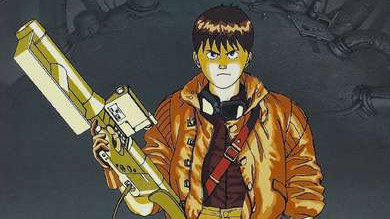
One of the best anime, and probably the film that brought anime to the UK and US mainstream, next on our list is cyberpunk classic Akira. It showed many Western audiences that Japan is home to some of the most exciting storytelling in cinema. Set in the post-apocalyptic Neo-Tokyo of 2019 (coincidentally, the same year as Blade Runner), it focuses on two members of a biker gang – one of whom is involved in an accident that gives him uncontrollable telekinetic abilities...
Shot through with an incredibly kinetic animation style, the action sequences (set against some stunning Neo-Tokyo backdrops) are never less than spectacular, before things get properly weird in the boundary-pushing final act.
23. RoboCop (1987)

It would be easy to dismiss RoboCop as the epitome of ’80s Hollywood excess. After all, director Paul Verhoeven’s story of a left-for-dead police officer reborn as a prototype cyborg is ultraviolent, ridiculous and stocked high with scenery-chewing performances.
At the same time, however, RoboCop is a super-smart satire on capitalism run amok, where the gratuitous action is punctuated by hilariously over-the-top TV clips. Despite spending most of the movie stomping around in a cumbersome robot suit, Peter Weller gives the movie a human center as the criminals and morality-free corporate suits run amok around him. Lots of action movies of this vintage were stupid – RoboCop is not one of them.
22. The Day the Earth Stood Still (1951)
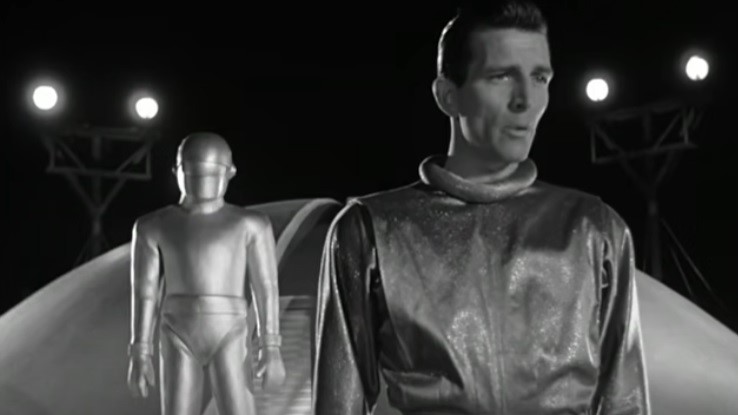
The poster for this early sci-fi classic sells a movie that doesn’t actually exist – if you’re waiting for the moment when giant robot carries a visibly distressed young woman across a battlefield, firing lasers from its eyes, you’re going to be disappointed. Instead, The Day the Earth Stood Still is a cerebral Cold War era parable that taps into very real concerns about global nuclear war.
While alien Klaatu’s warning from the cosmos now feels a tad simplistic and trite –he’s basically saying live in peace or die – it’s delivered with an impact the mediocre 2008 Keanu Reeves remake simply can’t match. Meanwhile, robot sidekick Gort and the arrival of Klaatu’s flying saucer still rank among the most iconic images in science fiction history.
21. ET: The Extra-Terrestrial (1982)
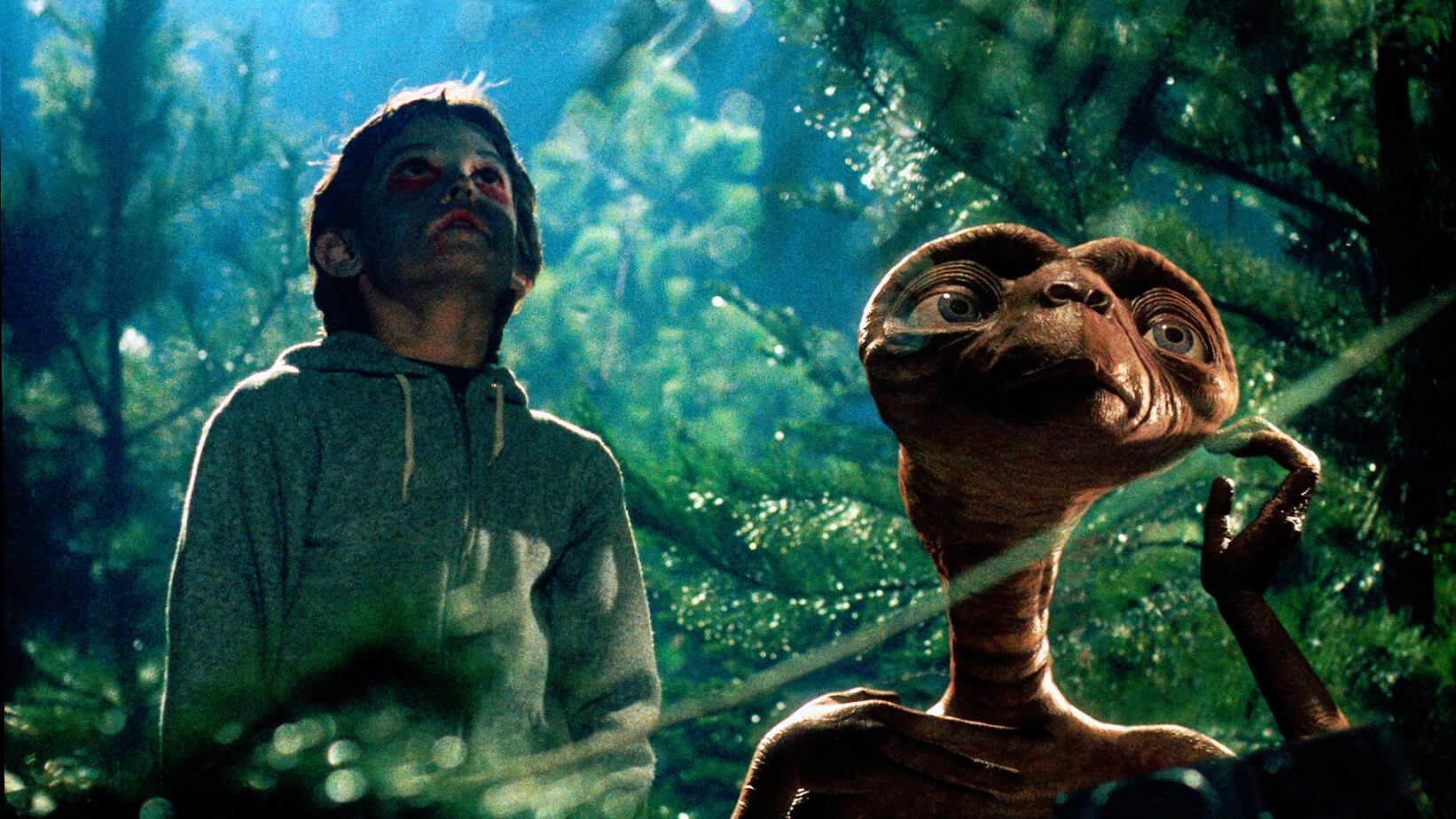
A movie so synonymous with Steven Spielberg that he used its most famous shot as the logo for his Amblin production company, ET is the definition of a modern fairytale. It’s also the film where the director gained a reputation for getting wonderfully naturalistic performances from child actors, as a trio of kids befriend an alien left behind on Earth – it’s basically the plot of The Martian in reverse.
Spielberg knows how to hit all the right emotional buttons – fighting back tears during the closing scenes is usually a losing battle – but doesn’t skimp on the set pieces or drama. And of all the scores John Williams has written for the director, his work on ET may just be his best.
20. Inception (2010)

In an era when franchise movies rule at the box office, Christopher Nolan stands almost alone as a director with the clout to persuade a film studio to spend a few hundred million dollars on an original project. So full credit to Warner Bros for bank-rolling this journey into the world of dreams, where Leonardo DiCaprio’s Dom Cobb leads a crack team of operatives (including a standout Tom Hardy) into the subconscious.
From start to finish, Nolan revels in showing us things we’ve never seen on screen, whether it’s folding cities and physics-inverting fight scenes, or a devilishly tricksy dream-within-a-dream-within-a-dream narrative structure. Interstellar and Tenet both have their moments, but Nolan hasn’t hit Inception’s heights since.
19. Galaxy Quest (1999)
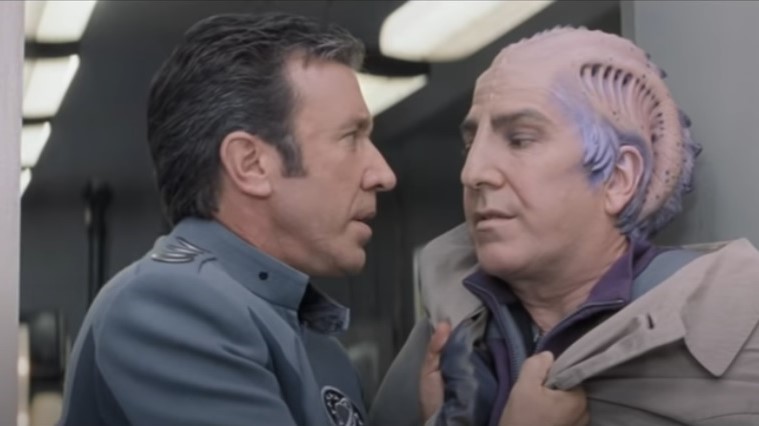
With only one actual Star Trek movie worthy of a mention on this list of the best sci-fi movies, the presence of a film so clearly inspired by James T Kirk and the Enterprise crew may seem strange. Yet Galaxy Quest is simultaneously a hilarious comedy, a great sci-fi story and a pitch-perfect recreation of the final frontier – calling it a spoof would be doing a movie this reverential a disservice.
Borrowing elements of its plot from ¡Three Amigos!, Galaxy Quest is based around a case of mistaken identity as the cast of a cancelled sci-fi TV show are summoned to save a race of aliens from an interstellar warlord. The cast (led by Tim Allen, Sigourney Weaver and Alan Rickman) play their roles to perfection, the knowledge of Trek lore is flawless, and the way it makes fans the center of the story is way ahead of its time.
18. Mad Max: Fury Road (2015)
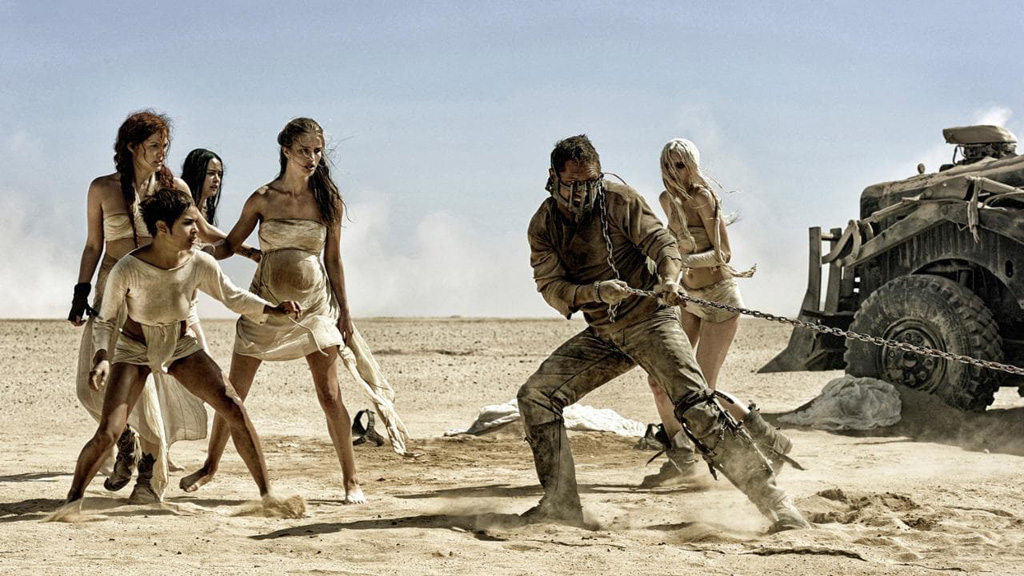
George Miller made his first Mad Max movie in 1979. Thirty-six years later, at the fourth attempt, he nailed it.
With Tom Hardy stepping into Mel Gibson’s shoes as the monosyllabic Max, Miller returned to the brutal post-apocalyptic Australia that had spawned its own brand of end-of-the-world chic (see also Waterworld, The Matrix). But, despite having his name in the title, Max was no longer the star of the show. That honor was now taken by Charlize Theron’s Imperator Furiosa, a powerful warrior on a mission to save five young women from brutal dictator Immortan Joe.
Essentially a two-hour chase sequence, Fury Road features exhilarating car chases, gravity-defying stunts, and a surprisingly emotional edge. Barren, post-apocalyptic wastelands have never looked this cinematic.
17. Star Trek II: The Wrath of Khan (1982)
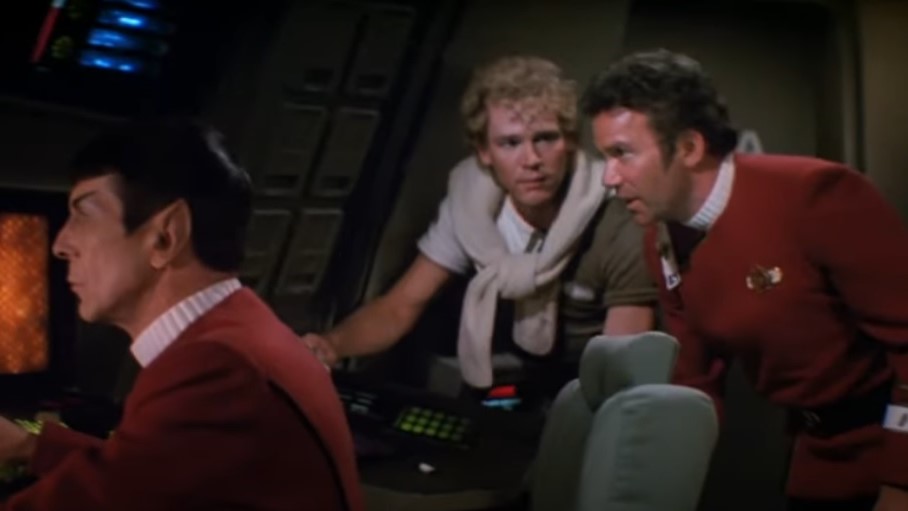
After the false start of Star Trek: The Motion Picture – too long, too slow, too pompous – the Enterprise crew’s second attempt to boldly go to the big screen hits the target in spectacular fashion. In what remains the long-running franchise’s high watermark, director Nicholas Meyer (a newcomer to Trek at the time) crafts a taut, tension-filled piece of space opera that owes as much to submarine movies as Gene Roddenberry’s TV show.
The movie’s true masterstroke, however, is the choice of antagonist, as Ricardo Montalban’s Khan Noonien Singh (who first appeared in original series episode ‘Space Seed’) vows vengeance on James T Kirk for abandoning him on a lonely planet. Although they never meet face-to-face, their game of cosmic cat-and-mouse brings out the best in both William Shatner and Montalban, while the tragic ending is Trek at its most heartbreaking.
16. Jurassic Park (1993)
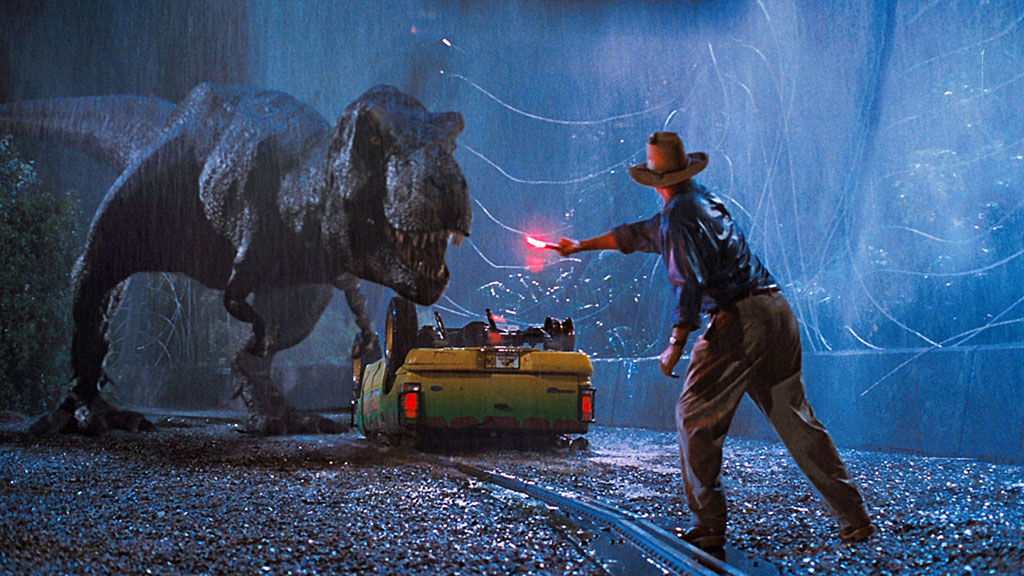
The late Michael Crichton clearly had a thing for theme parks going wrong – by the time he wrote Jurassic Park, he’d already unleashed Yul Brynner’s robot cowboy on an unsuspecting public as the director of Westworld. The author found his perfect foil when Steven Spielberg adapted his resurrected-dinosaurs novel.
The highest grossing movie of all-time for much of the ’90s, Spielberg’s blockbuster is full of the trademark touches – ripples in the glass of water, objects in the rear-view mirror being closer than they appear – that make him the finest action director of his generation. But the real stars of Jurassic Park were always the dinosaurs, with ILM’s innovative, computer-generated creatures still (mostly) looking the business today.
15. Forbidden Planet (1956)
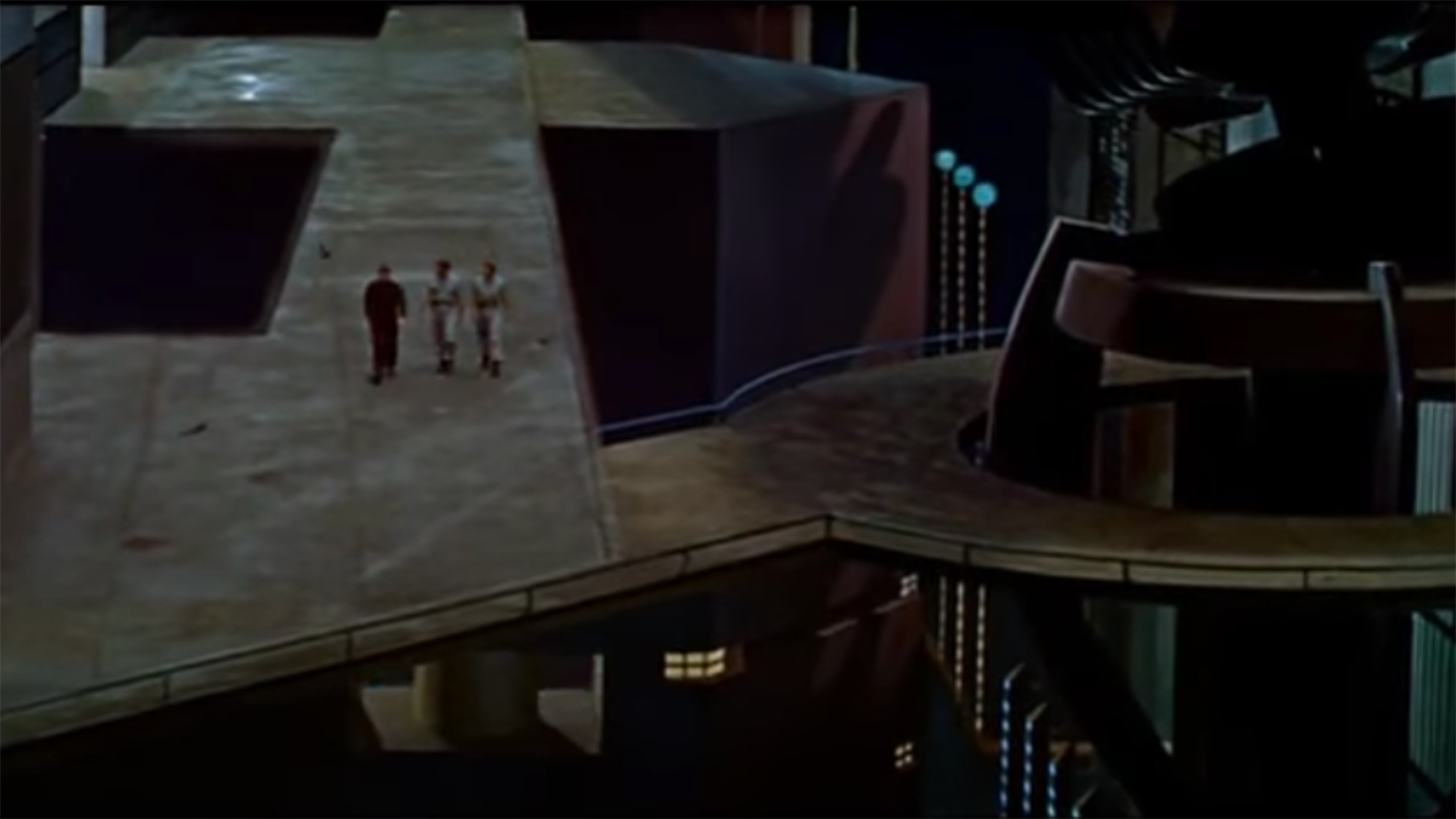
There’s no denying this early space-set adventure is incredibly dated – most of the performances are stiff, the spaceship is an actual flying saucer, and the gender politics are an uncomfortable relic of another time. You also get the (now strange) experience of a pre-Airplane! Leslie Nielsen in a non-comedy role.
Look past the ’50s trappings, however, and this unconventional take on Shakespeare’s The Tempest is a truly innovative slice of science fiction, with a genre-defining robot (Robby), an ahead-of-its time electronic soundscape (to call it a score would be misleading), and a truly terrifying animated monster. They may not make them like they used to, but Forbidden Planet paved the way for many of the best sci-fi movies that followed.
14. WALL-E (2008)
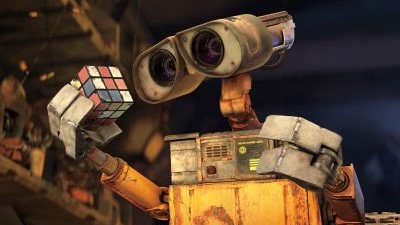
Before it got over-zealous with sequels and prequels in the 2010s, Pixar had a near-unbroken run of bold, innovative instant classics. They arguably never pushed the envelope further than they did with WALL-E, however, a movie that took a cute robot and landed him in one of the bleakest visions of a future Earth in cinema history.
It’s hard to say what’s boldest about writer/director Andrew Stanton’s Finding Nemo follow-up – the fact that he tells an unashamed (and very sweet) love story between two robots, or that his opening act plays out with close to zero dialogue. Either way, WALL-E’s stunning visuals and flawless storytelling mean it stands up as one of the very best sci-fi movies of the 21st century.
13. Brazil (1985)
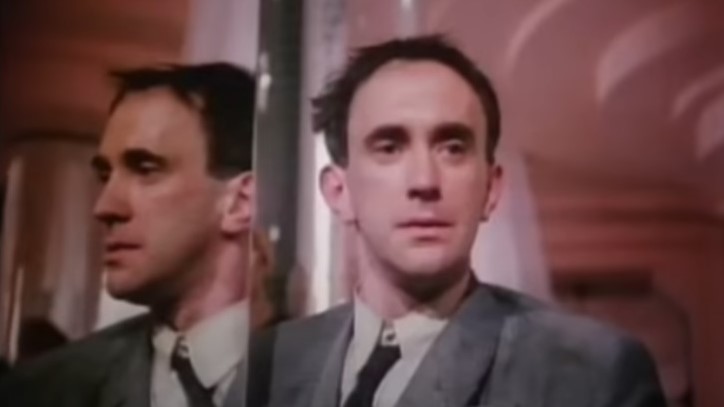
Originally titled 1984 ½, Brazil is essentially George Orwell reinterpreted by Terry Gilliam. Indeed, the Monty Python alumnus turned director has never found a more suitable vehicle for his idiosyncratic sensibilities than this wonderfully surreal dystopian vision.
The plot – in which unambitious government employee Sam Lowry (Jonathan Pryce) tries to remedy a case of mistaken identity – is basically a satire on excessive bureaucracy. But the storytelling is secondary to the depiction of a dark, duct-filled surveillance state that seems to exist across the entire 20th century simultaneously – the quirky production design was a major influence on Loki’s Time Variance Authority. Brazil is also the only one of our best sci-fi movies to feature Robert De Niro as a vigilante, freedom-fighting plumber.
12. Arrival (2016)

Science fiction has always been the genre of big ideas, and they don’t come much bigger than Arrival’s. Based on Ted Chiang novella ‘Story of Your Life’, it’s a first contact story about a linguist (an Oscar-worthy Amy Adams) trying to communicate with alien visitors before hawk-ish military leaders attack.
Where most extra-terrestrials in sci-fi look and sound vaguely human, Arrival’s ‘heptapods’ embrace the Other, with a mind-stretching approach to language that allows for some jaw-dropping, time-hopping narrative twists. It’s all expertly helmed by director Denis Villeneuve, who’s since established himself as Hollywood’s go-to-guy for intelligent sci-fi with Blade Runner 2049 and the upcoming Dune.
11. The Fly (1986)

It’s a rare trip into the mainstream for David Cronenberg, yet the body-horror auteur doesn’t pull any punches in this loose remake of the 1958 B-movie of the same name. Where the original was pure schlock – it features a man walking round with a fly’s head and arm, for god’s sake – Cronenberg tells a story of disease and decay, as scientist Seth Brundle (a brilliant Jeff Goldblum) takes a ride through his prototype teleporter, and accidentally splices his DNA with that of a house fly.
Watching Goldblum’s body slowly morph into a human/insect hybrid is stomach-turningly icky – the prosthetic effects are as gross as they are brilliant – but it’s anchored by Brundle’s tragic relationship with Geena Davis’s journalist.
10. Close Encounters of the Third Kind (1977)
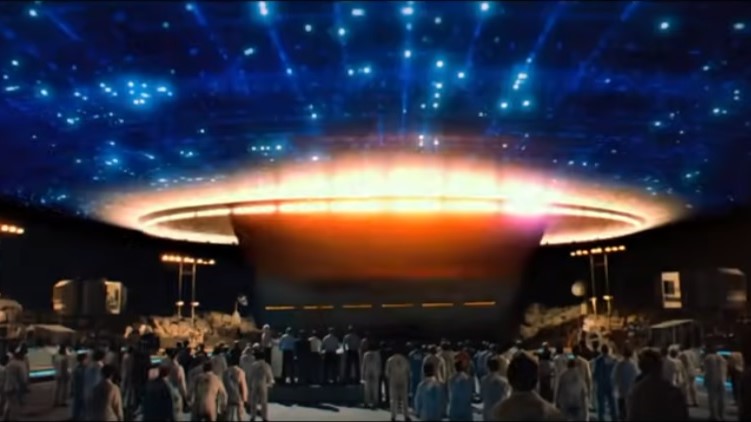
The other big sci-fi movie of 1977 is an intriguing counterpoint to Star Wars. Where George Lucas embraced the fantastical in a galaxy far, far away, his old friend Steven Spielberg kept the focus on an ordinary American family thrust into extraordinary circumstances.
The results are just as spectacular – effects guru Douglas Trumbull also worked on 2001: A Space Odyssey – albeit in a more Earthbound way. Richard Dreyfuss delivers a perfectly calibrated mix of childlike wonder and obsession as the everyman whose chance UFO sighting takes over his life – and inadvertently kickstarts a sideline in mashed potato sculpture.
But with Spielberg directing from his own screenplay, Close Encounters is arguably the purest distillation of the filmmaker’s considerable talents, a movie you can’t imagine anyone else making.
9. The Thing (1982)
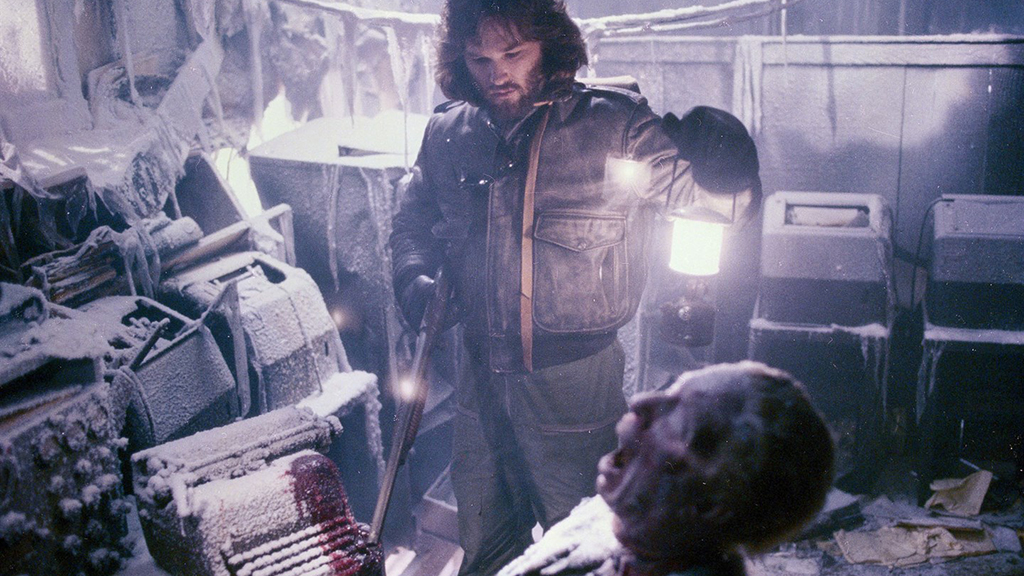
Assault on Precinct 13, Halloween, The Fog, Escape from New York… Few directors announce their arrival in Hollywood with a run quite like John Carpenter’s, yet The Thing may just be the best of the bunch.
Based on 1951 movie The Thing from Another World (itself based on John W Campbell novella Who Goes There?), the Carpenter version pits the lonely residents of a US Antarctic base against a shapeshifting alien of unknown origin.
The director maximizes the tension and paranoia, exploiting the audience’s knowledge that any one of the all-male cast (led by Carpenter regular Kurt Russell) could be the invader in disguise. Yet the movie’s breakout star is Rob Bottin’s peerless effects work, his use of prosthetics and rubber skin giving the creature a disconcertingly otherworldly feel – as one of the characters so eloquently puts it, “You’ve gotta be f**king kidding”.
8. Planet of the Apes (1968)
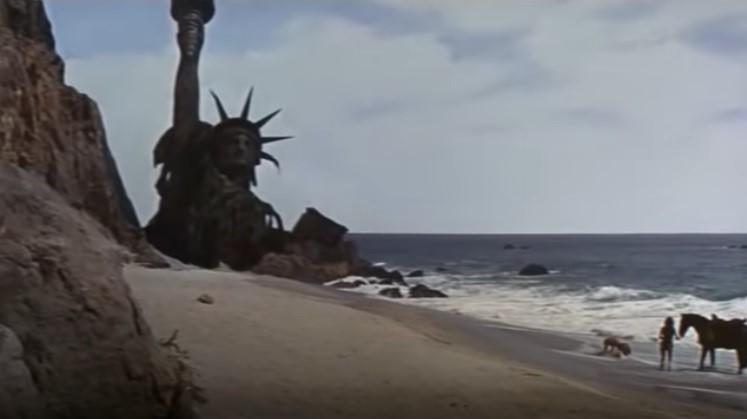
Charlton Heston and his brave crew of astronauts embark on a one-way mission into deep space, and crash land on a world populated by “damn dirty apes”. It managed to spawn numerous sequels, a couple of TV shows, and large quantities of merchandise, but this original movie is much more than an excuse to launch a franchise.
Heston carries the film as the gruff mission commander who suddenly finds he’s a member of a hunted species, while lead apes Roddy McDowall and Kim Hunter make their humanity shine through thick layers of simian make-up. Best of all, however, is the shock ending – a killer twist devised before M Night Shyamalan was even born.
7. The Matrix (1999)
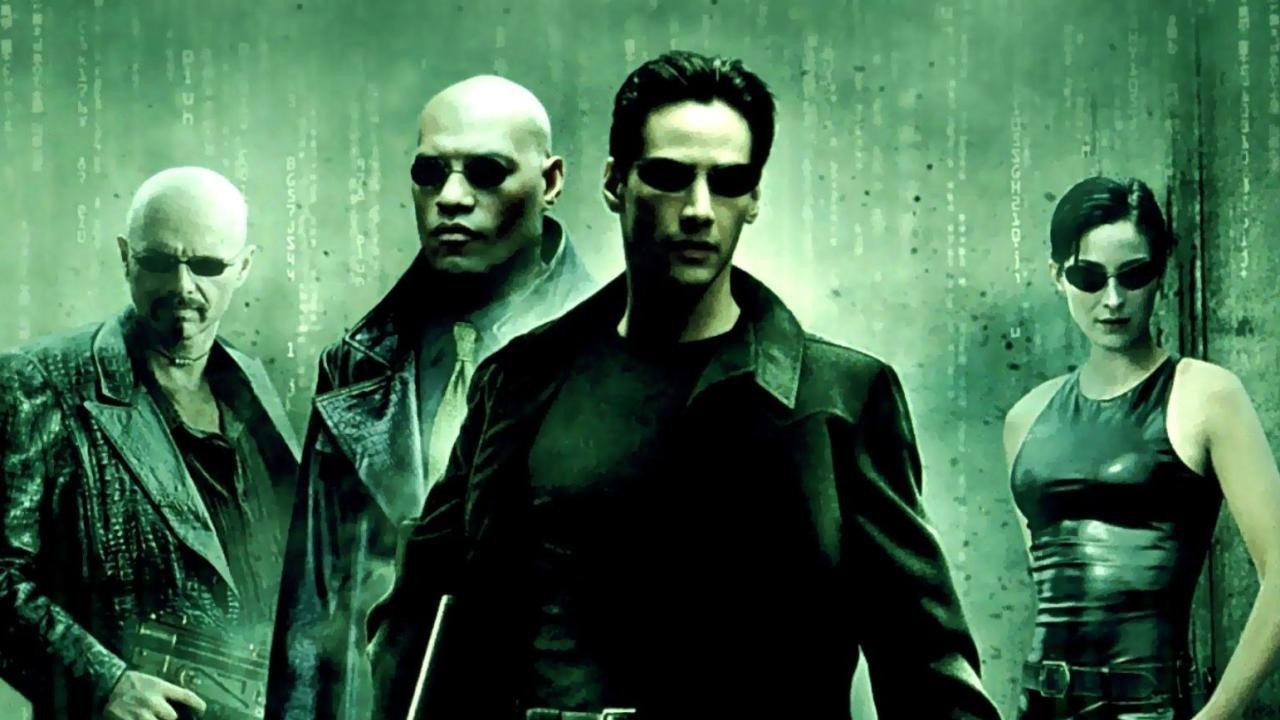
At the start of 1999, the only sci-fi movie anyone wanted to talk about was The Phantom Menace. Come the end of the year, however, the film dominating conversations was an unlikely blend of dystopian drama, turbo-charged martial arts action and a generous helping of philosophy.
Writer/director siblings the Wachowskis (whose only previous film was low-budget crime drama Bound) revealed a Tarantino-like gift for magpie-ing ideas from so many disparate sources that they created something entirely fresh and new. The resulting journey into a computer simulation enslaving humanity became one of the most influential movies of the subsequent decade, and reminded the world why Keanu Reeves is one of Hollywood’s biggest stars.
6. 2001: A Space Odyssey (1968)

Silent classic Metropolis created a definitive future cityscape half a century before Blade Runner, while Forbidden Planet took cinema to the final frontier. But 2001: A Space Odyssey has a strong claim on being the most influential sci-fi movie ever made – and we’re including Star Wars in that statement.
Inspired by Arthur C Clarke short story The Sentinel, legendary director Stanley Kubrick tells an ambitious tale that spans mankind’s journey from intelligent thought to space travel in a single, brilliant match cut. While 2001 may be a bit sterile for some tastes – particularly in the scientifically accurate silence of the spacewalk scenes – it’s a triumph of production design and imagineering. The meaning of the surreal final act has also been debated for over 50 years – the ultimate trip, indeed.
5. The Terminator/Terminator 2: Judgment Day (1984/1991)
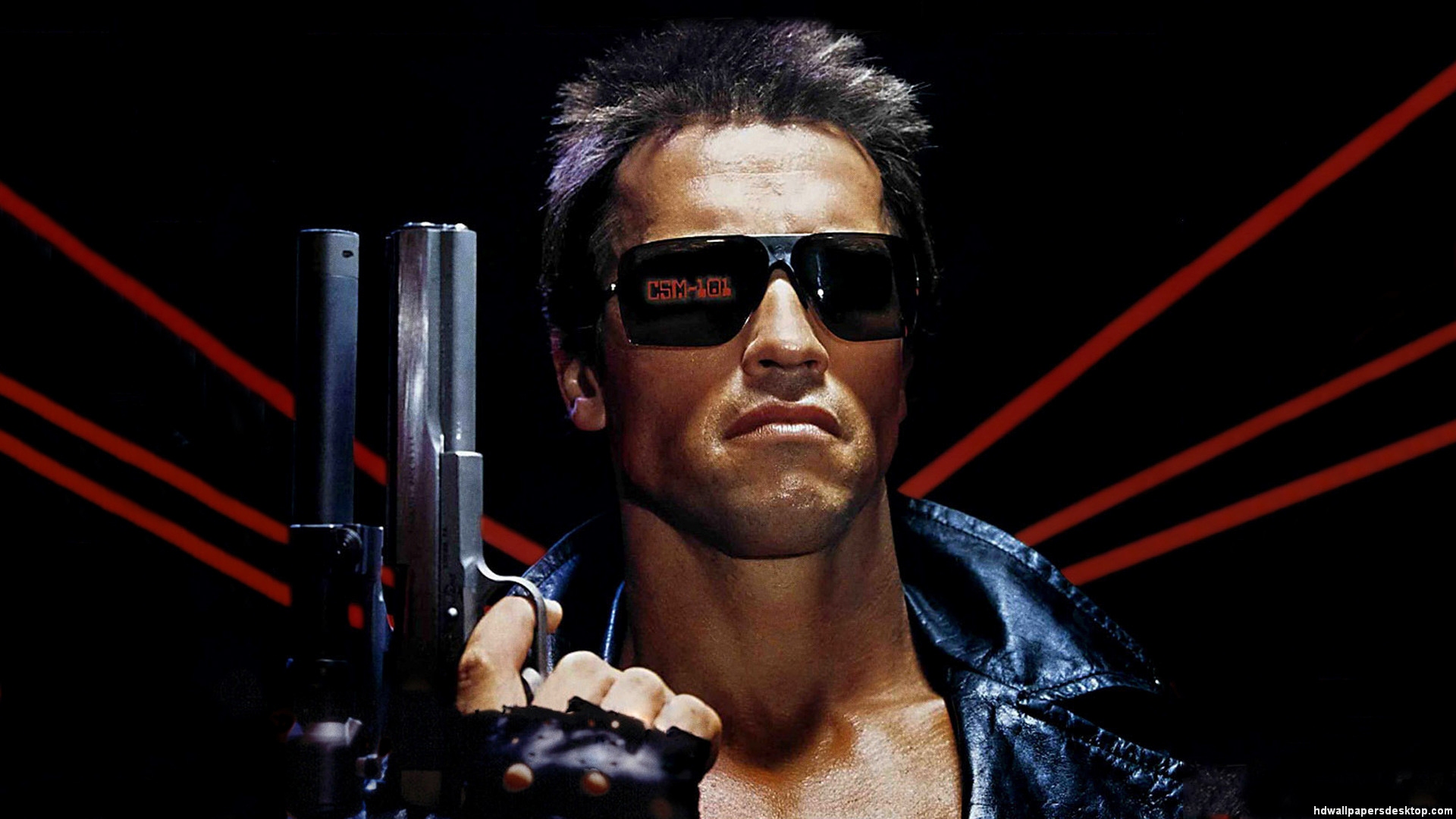
There can’t have been many more fruitful dreams in history than the one that gave James Cameron the idea for The Terminator. The original movie is like a blueprint for action cinema, its almost implausibly tight storytelling making Arnold Schwarzenegger’s merciless cyborg killer one of cinema’s most iconic, most relentless bad guys.
Seven years later, Cameron returned with one of the all-time great sequels, upping the budget and the ante. With Arnie now on the side of the angels, protecting the future savior of mankind, Cameron took advantage of then-state-of-the-art CG to create a lethal liquid metal adversary, the likes of which nobody had ever seen before. Together The Terminator and T2 tell a near-perfect, self-contained science fiction story – every Terminator film that’s followed has been a pale imitation.
4. Back to the Future (1985)
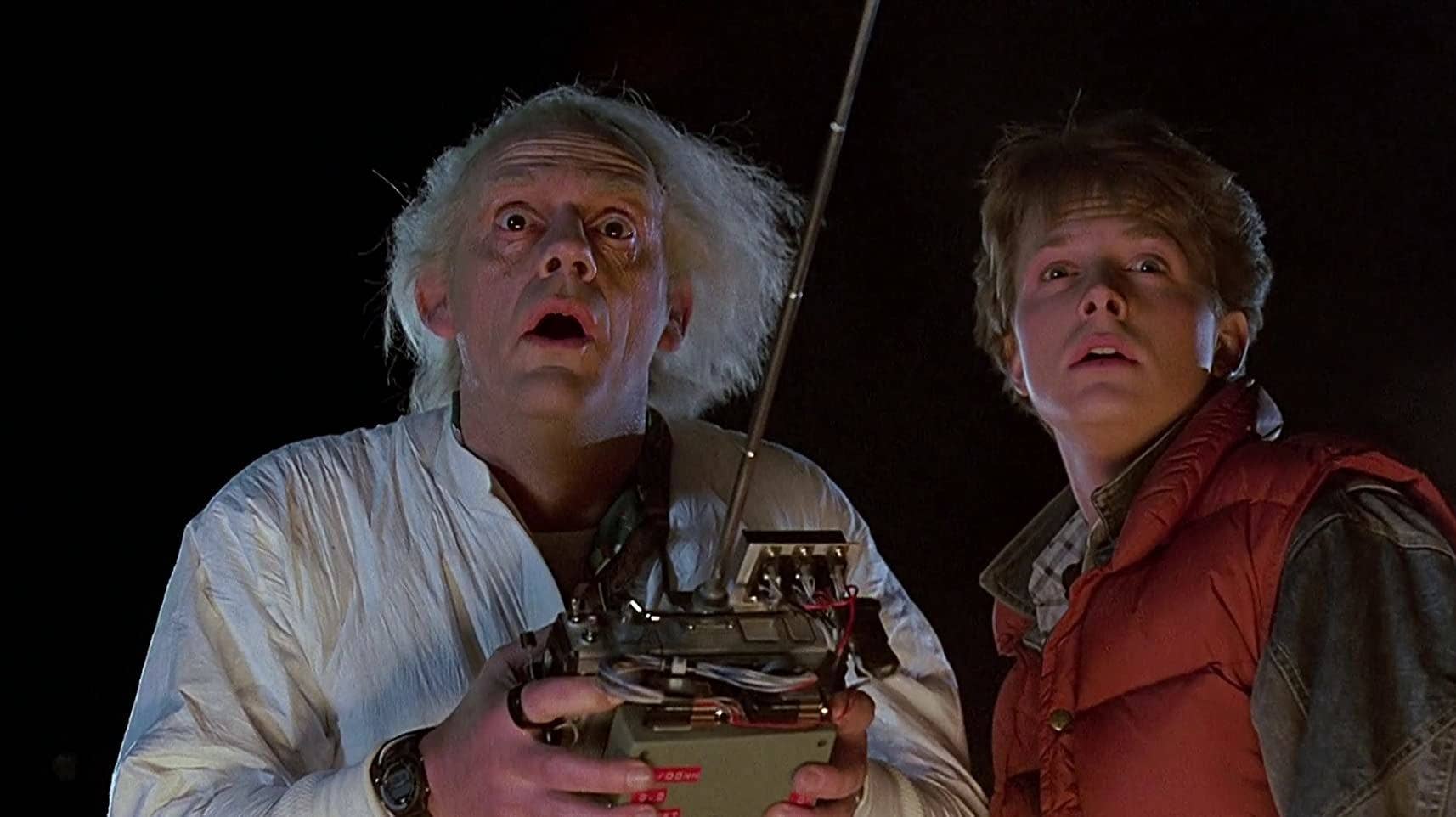
Plenty of filmmakers have tried to play around in the space-time continuum, but no movie has done it better than Back to the Future – in short, it works like clockwork.
Every scene in Bob Gale and director Robert Zemeckis’s dazzling script – with the possible exception of Marty McFly ‘inventing’ rock ‘n’ roll at the high school dance – advances the plot in some way, while the movie’s iconic moments (the DeLorean, 88 MPH, not needing roads) are now pop culture staples.
But for all the brilliant time-hopping sci-fi, the reason Back to the Future is a regular at the top of best-ever lists is its human element. Marty and his scientist BFF Doc Brown are one of genre cinema’s great double acts, and their efforts to save the McFly family – and the Hill Valley timeline – are what gives the movie its considerable heart.
3. Blade Runner (1982)

It’s strange to think that Blade Runner’s 2019 setting is now in the past, because Ridley Scott’s dystopian classic has for so long been one of cinema’s definitive visions of the future. That said, it took the world several years to realise the movie’s brilliance, as it wasn’t until the release of 1992’s ‘Director’s Cut’ – which removed Harrison Ford’s bored voiceover, and made the ending much more ambiguous – that it cemented its place among the best sci-fi movies of all time.
With the dark, perpetually rainy Los Angeles cityscape and Vangelis soundtrack adding to the sultry mood, Scott’s take on Philip K Dick’s ‘Do Androids Dream of Electric Sheep’ plays out like a crime noir with robots and flying cars. Admittedly, the detective side of the story could be more gripping, but in all other regards this is a true classic, packed with memorable characters and scenes.
2. Alien/Aliens (1979/1986)
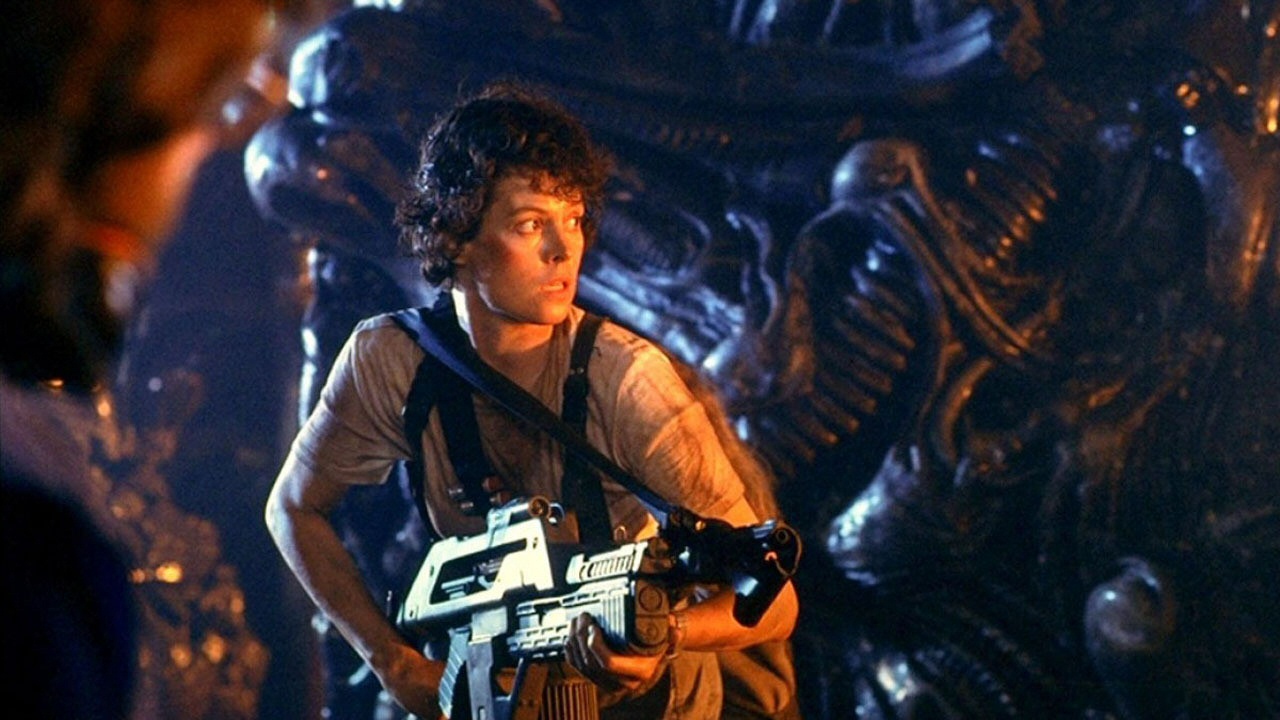
Beyond their masterful approaches to suspense (Alien) and action (Aliens), the movies have two trump cards in their arsenal. The first is Sigourney Weaver, whose Ellen Ripley evolved from the coldly efficient warrant officer of the Nostromo, into one of cinemas most iconic, relatable heroes – a particularly impressive achievement in an era when action stars were always male.
The other is the lethal alien that gives the saga its name. Designed by Swiss artist HR Giger, it’s an unholy alliance of teeth, acid blood and slime whose complete lack of empathy makes it one of the most chilling creatures ever to terrorize a movie screen. Sadly, the xenomorph has never again hit the heights it did in those first two classic movies.
Like the first two Terminator movies, the spectacular double-whammy of Alien and Aliens continue to make life difficult for every movie or TV show that ventures onto their turf. Ridley Scott’s original horror and James Cameron’s bug-hunt sequel have defined their respective genres to such a degree that you either follow their blueprint, or risk being accused of doing it wrong.
1. The original Star Wars trilogy (1977/1980/1983)
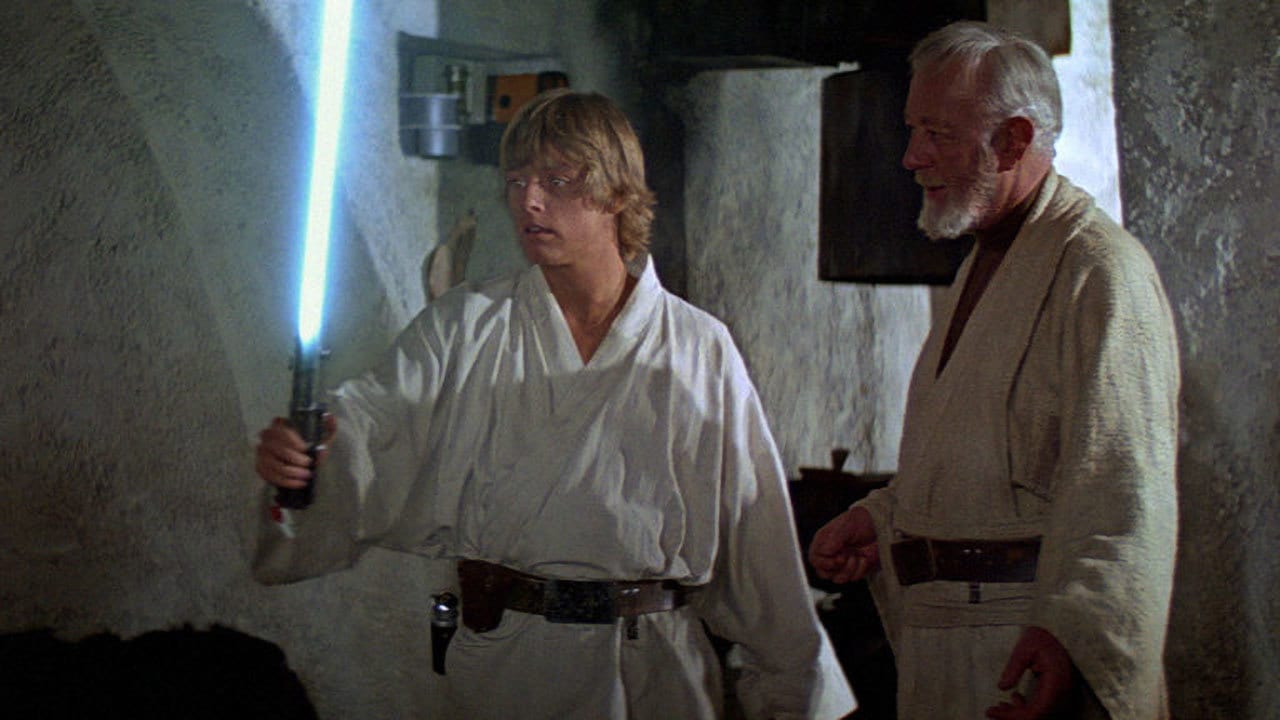
There’s another version of history where George Lucas managed to secure the rights to Flash Gordon, scratched his itch to make a space opera, and Luke Skywalker, Han Solo and Princess Leia never made it out of his imagination. Luckily, we live in the timeline where a certain galaxy far, far away exists.
No cinema franchise in history has had a bigger impact than Star Wars, a saga whose droids, starships, music and even sound effects have become part of planet Earth’s collective consciousness. Effectively a fantasy trilogy in sci-fi clothing, Lucas’s movies effortlessly mix the action of ’30s adventure serials with magic and a hefty dose of mythology.
Four decades on, it’s impossible to think of A New Hope, The Empire Strikes Back and Return of the Jedi in isolation, each one playing a key role in Lucas’s three-part epic. With prequels, sequels, TV shows, books, comics, games and more adding to the mythology, Star Wars remains one of Hollywood’s big hitters. But the original trilogy looms majestically over everything that’s followed – probably the best sci-fi movies of all time.
Get daily insight, inspiration and deals in your inbox
Sign up for breaking news, reviews, opinion, top tech deals, and more.
Richard is a freelance journalist specialising in movies and TV, primarily of the sci-fi and fantasy variety. An early encounter with a certain galaxy far, far away started a lifelong love affair with outer space, and these days Richard's happiest geeking out about Star Wars, Star Trek, Marvel and other long-running pop culture franchises. In a previous life he was editor of legendary sci-fi and fantasy magazine SFX, where he got to interview many of the biggest names in the business – though he'll always have a soft spot for Jeff Goldblum who (somewhat bizarrely) thought Richard's name was Winter.
